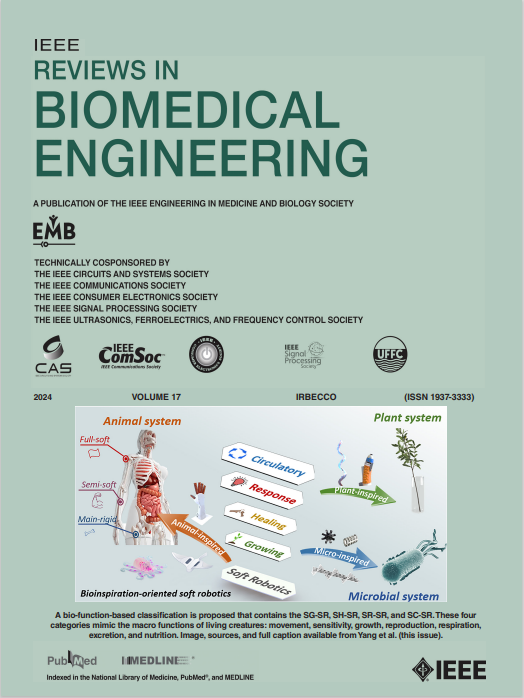针对低资源环境的临床决策支持系统的前景
IF 17.2
1区 工程技术
Q1 ENGINEERING, BIOMEDICAL
引用次数: 2
摘要
低资源的临床环境受到医生与患者比例低以及高质量医疗专业知识和基础设施短缺的困扰。这些现象共同导致医疗系统负担过重,无法满足社区的需求。可以通过引入临床决策支持系统来减轻这种负担;在临床环境中支持利益相关者(从医生到患者)日常活动的系统。这种系统在发达国家已被证明是有效的,但在资源匮乏的环境中仍有待充分探索。这篇综述试图总结专注于临床决策支持系统的研究,这些系统要么针对低资源临床环境中的利益相关者,要么针对此类环境中常见的疾病。当根据疾病应用对我们的发现进行分类时,我们发现CDSS主要专注于处理细菌感染和产妇护理,没有利用深度学习,也没有进行前瞻性评估。总之,这些突出了在这一领域增加研究的必要性,以影响一系列不同的医疗条件,并最终改善患者的预后。本文章由计算机程序翻译,如有差异,请以英文原文为准。
The Promise of Clinical Decision Support Systems Targetting Low-Resource Settings
Low-resource clinical settings are plagued by low physician-to-patient ratios and a shortage of high-quality medical expertise and infrastructure. Together, these phenomena lead to over-burdened healthcare systems that under-serve the needs of the community. Alleviating this burden can be undertaken by the introduction of clinical decision support systems (CDSSs); systems that support stakeholders (ranging from physicians to patients) within the clinical setting in their day-to-day activities. Such systems, which have proven to be effective in the developed world, remain to be under-explored in low-resource settings. This review attempts to summarize the research focused on clinical decision support systems that either target stakeholders within low-resource clinical settings or diseases commonly found in such environments. When categorizing our findings according to disease applications, we find that CDSSs are predominantly focused on dealing with bacterial infections and maternal care, do not leverage deep learning, and have not been evaluated prospectively. Together, these highlight the need for increased research in this domain in order to impact a diverse set of medical conditions and ultimately improve patient outcomes.
求助全文
通过发布文献求助,成功后即可免费获取论文全文。
去求助
来源期刊

IEEE Reviews in Biomedical Engineering
Engineering-Biomedical Engineering
CiteScore
31.70
自引率
0.60%
发文量
93
期刊介绍:
IEEE Reviews in Biomedical Engineering (RBME) serves as a platform to review the state-of-the-art and trends in the interdisciplinary field of biomedical engineering, which encompasses engineering, life sciences, and medicine. The journal aims to consolidate research and reviews for members of all IEEE societies interested in biomedical engineering. Recognizing the demand for comprehensive reviews among authors of various IEEE journals, RBME addresses this need by receiving, reviewing, and publishing scholarly works under one umbrella. It covers a broad spectrum, from historical to modern developments in biomedical engineering and the integration of technologies from various IEEE societies into the life sciences and medicine.
 求助内容:
求助内容: 应助结果提醒方式:
应助结果提醒方式:


